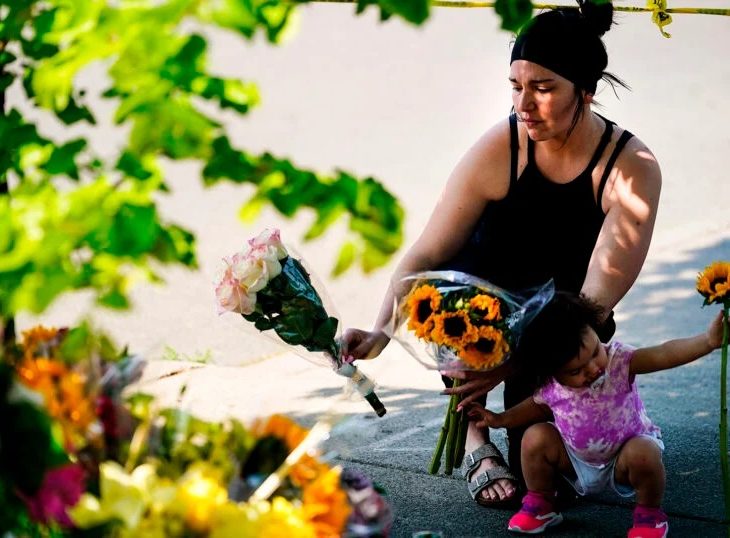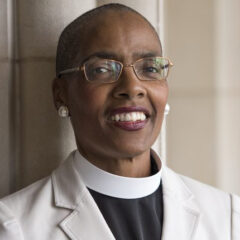The Conversation White Parents Should Be Having with Their Children
May 18, 2022

(RNS) — The teenager accused of killing 10 people and injuring three others at a Buffalo grocery store on Saturday (May 14) after posting white supremacist views online for months is barely more than a child. In Texas, a 9-year-old white boy went to his Black neighbors’ home last week, whip in hand, allegedly with the intent of whipping a 9-year-old Black girl who lived there.
Kyle Rittenhouse was only 17 when he killed two people during a Black Lives Matter rally in Wisconsin (and was found not guilty of any crime). Other perpetrators were hardly older: Patrick Wood Crusius, who is accused of killing 23 people at an El Paso Walmart, and Dylann Roof, who murdered nine at Emanuel African Methodist Episcopal Church in Charleston, South Carolina, were 21 at the time of those crimes.
As has been widely discussed in this time of white people’s heightened awareness of “racialized” policing, we Black parents are used to the conversations with our children about how to behave around law enforcement personnel just to keep them alive. But no one seems to be talking about a more important conversation between white parents and their children.
What are white parents saying to their children about race?
Children are not born into this world hating others. White children do not enter this world as white supremacists. To become a white supremacist at an early age requires careful nurturing and collusion among institutions that are entrusted with fostering moral and spiritual well-being: family, schools and religious institutions.
It’s simply not enough to declare oneself an anti-racist and say to children in the wake of the latest racist outbreak, “These are not our family, school or religious values.” The notion of white supremacy has so penetrated our nation’s very core that all it takes is a call to “Make America Great Again” for this virulent force to mobilize. It’s not nearly enough for white people to say “I am not racist” or to decry deadly racist violence after the fact. It’s long past time for white America to reckon with the lessons it is teaching its children.
Children must learn about this nation’s racial history and the struggle for racial justice. Hope for change is found in these struggles against hate — hope that this nation can become a place where all are treated equally and respected as the sacred human beings that they are. Borrowing the words of Richard Rothstein, if our children are not taught an accurate account of our racial history, they have little chance of doing a better job than past generations or our own when it comes to promoting racial justice.
All children must learn about the insidious realities of white privilege, including the privilege of not having to address race or hear “the race talk” from their parents. The desire to maintain white innocence and safeguard white children’s comfort is a way of safeguarding white privilege. Not talking about white privilege is the soil in which white supremacy festers.
The news stories of the past days — the past year, the past years — make it clear that there are far too many white homes where conversations about white privilege and racism are simply not happening. In fact, quite the opposite seems to be taking place: A wave of local laws and regulations put in place recently is designed to make sure that such conversations and lessons do not take place in our schools.
That leaves it to white faith communities and religious institutions. Inasmuch as the lives of Black children and other children of color are at stake, so too is the spiritual well-being of white children. Combating white nationalism is a moral and spiritual issue. On seeing the video of the white boy with a whip, a colleague of mine texted, “Can you imagine being that spiritually destroyed at 9 years old?”
To remain silent while lessons about American history and its ongoing legacy in our country today are under attack is to effectively surrender children to a white supremacist education. To go on with business as usual in our Sunday schools without confronting the realities of race is to leave our children vulnerable to religiously legitimated racial hatred. It’s time for white faith and religious leaders who claim to be anti-racist and to abhor white supremacist hatred to claim the moral and spiritual courage to do and say something about it.

The Very Rev. Kelly Brown Douglas. Photo courtesy of Washington National Cathedral
It is time for them to care for their children’s spiritual well-being so that ours might live.
(The Very Rev. Kelly Brown Douglas is the canon theologian at Washington National Cathedral and dean of the Episcopal Divinity School at Union Theological Seminary. The views expressed in this commentary do not necessarily reflect those of Religion News Service.)
Share
Related Articles
Racial Equity
Immigrant Faith Communities On Rooting Out Anti-Black Racism
American Civic Life
American Civic Life
Is This a Time for Bridgebuilding? 5 Leaders in Conversation



